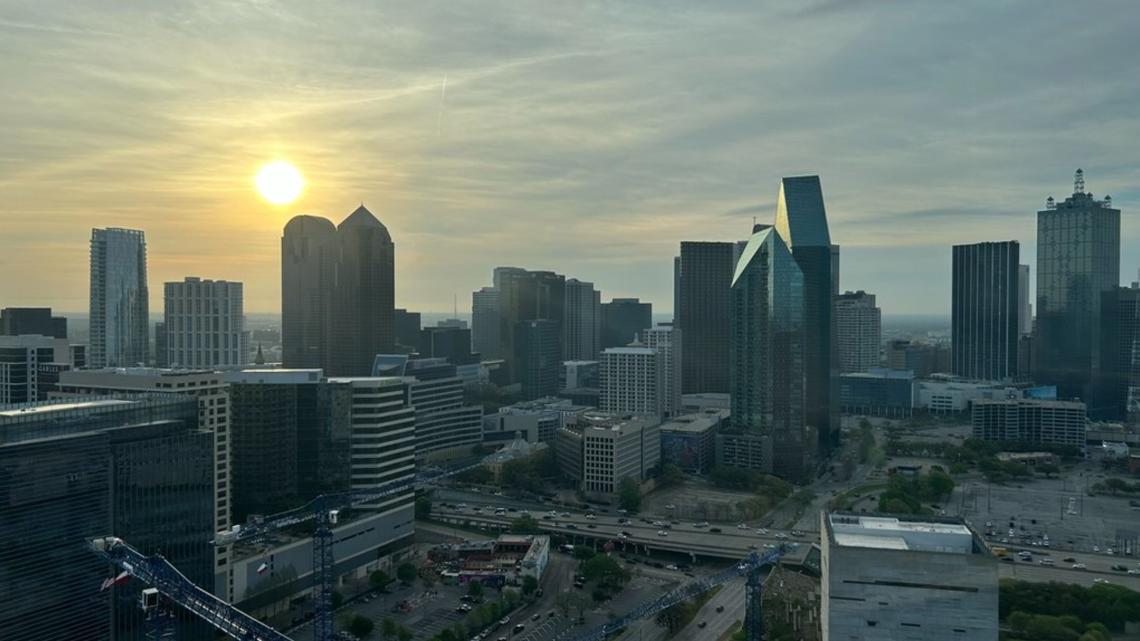The analysis found that heavily urbanized areas can get up to 14 degrees hotter than less developed areas, the city said.
DALLAS — According to a new analysis, heavily urbanized areas of Dallas are often 14 degrees hotter than less developed areas due to the sheer amount of surfaces like roofs and roadways.
The analysis, conducted by Smart Surfaces Conclusions, found Dallas has about 330,000 roofs, 20,400 miles of road, and 1,400 acres of parking lots, which absorb up to 95% of solar radiation. This can heat up the city to a dangerous degree in summer and worsen flooding.
According to the study, using “smart surfaces” like porous and permeable pavements, reflective roofs, roads and trees could reduce peak summer temperatures in Dallas’ hottest neighborhoods by up to almost 7 degrees.
The city of Dallas announced it has partnered with the coalition to find the city’s hottest, most flood-prone pockets and use solutions to help fight extreme heat and flooding.
“We are proud to partner with the City of Dallas to create solutions to make the city’s urban areas cooler, healthier, and safer for all residents, especially for outdoor workers, children, seniors, athletes, and unhoused people,” said Greg Kats, CEO & Founder of the Smart Surfaces Coalition. “These strategies cut energy bills, protect vulnerable populations, and strengthen the economy.”
Adopting these measures, the analysis says, could provide hundreds of millions of dollars in public health benefits, energy savings and infrastructure savings, while also reducing or offsetting more than 12 million metric tons of CO2 emissions and billions of gallons of stormwater over 35 years.
“Designing healthier cities is paramount in the reality of our rapidly warming world. Outdated, heat-trapping surfaces put millions at risk — especially in underserved neighborhoods,” said Georges C. Benjamin, MD, executive director, American Public Health Association. “The Smart Surfaces Coalition’s new tools give cities the power to design healthier, cooler and more resilient communities.”
